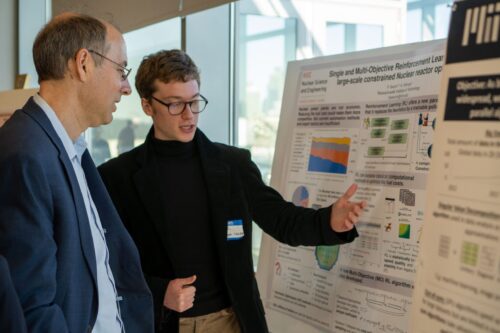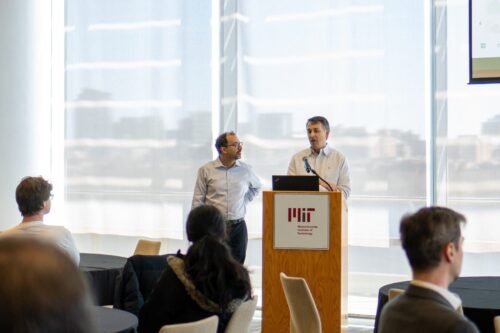About CCSE
CCSE focuses on developing and applying innovative computational methods to important problems in science and engineering.

What is Computational Science & Engineering (CSE)?
Computational science and engineering (CSE) centers on the development and analysis of state-of-the-art methods for computation, and their innovative application to problems of science and engineering interest. CSE synthesizes intellectual foundations in applied mathematics, statistics, computer science, and the full range of science and engineering disciplines into a discipline of its own—one that links the digital and physical worlds.
Key elements of CSE graduate education include computational mathematics (numerical analysis, optimization, model reduction, high-dimensional approximation), uncertainty quantification, statistical inference, and inverse problems, along with simulation methods ranging from numerical methods for partial differential equations to molecular simulation to Monte Carlo methods. Data-driven methods (e.g., scientific machine learning and computational statistics) are prominent threads within CSE, as are high-performance computing, mathematically-oriented programming languages, and their broader links to algorithms and software.
About the Center
Established in 2008 and incorporated into the Schwarzman College of Computing as one of its core academic units in January 2020, the MIT Center for Computational Science and Engineering (CCSE) is an interdisciplinary research and education center focused on innovative methods and applications of computation. CCSE involves PIs, postdocs and graduate students from MIT’s Schools of Engineering, Science, Architecture and Planning, and Management, as well as other units of the Schwarzman College of Computing.
Our work focuses on advancing computational methodologies for scientific discovery and technological innovation across a spectrum of societally important application areas. Our educational programs seek to train future generations of computational scientists and engineers to both develop and use sophisticated computational methods for a wide variety of applications.
Computational advances have resulted in a myriad of breakthroughs, including more efficient aircraft, higher-density transistors on chips, more energy-efficient electronic devices, greater yield chemical and biological processes, cleaner power plants, and higher resolution medical imaging. By bringing together researchers from across the Institute we serve as an interdisciplinary hub to study complex problems, create novel tools, methods, and algorithms for modeling, and help develop a stronger understanding of our physical world.
Our Research
We’re developing methods that can reshape technology, society, and our shared future.

Our Graduate Programs
Discover how we’re expanding possibilities for our graduate students and the field at large.
